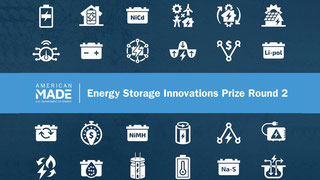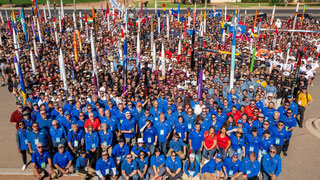TELUS Friendly Future Foundation is offering up to $1M CAD in funding to support partnerships between innovators and charities working in one or more of the following areas:
- Prevention and intervention to improve youth mental health
- Lack of access to housing (youth homelessness)
- Barriers to youth education and employment
- Making our communities safer and more inclusive for youth
Livability is a term used in planning and policy development and is often defined as creating systems that contribute to the physical, social and mental well-being and personal development of all community members. As we move into a new stage in the global pandemic, it’s become increasingly clear that youth have been disproportionately affected by this major social and economic upheaval. Youth-serving organizations have been sounding the alarm while working hard to meet increased demand with reduced resources. Risk factors that already made some youth vulnerable to negative short- and long-term outcomes have been amplified. Without new approaches and innovative thinking, these challenges will become further entrenched.
What do we know about the issues facing youth in Canada today?
- Mental health problems affect 1.2 million children and youth. By age 25, that number rises to 7.5 million (about one in five Canadians).
- Families with children are the fastest growing unhoused demographic. 1 in 5 shelter users in Canada are youth with 20% of Canada's 235,000 houseless population between the ages of 13 and 24.
- Across Canada, that’s 47,000 houseless youth seeking a safe place to be sheltered on any given night.
- Statistics Canada reports there are 6.9M youth in Canada today, with approx. 779,000 or 11% of those not in employment, education, or training (NEET). Of those youth facing barriers in their employment journey, 510,000 between the ages 15 to 29 are inactive (not seeking employment) with many struggling to enter the labour market for the first time or to find stable employment.
- Risk factors for NEET (youth not in employment, education or training) include low academic achievement, parental unemployment, lower socioeconomic status, low self-confidence, and mental health problems. A 2020 study found NEET youth can experience 10%-15% lower wages in adulthood compared to non-NEETs, and they were also 2.8 times as likely to be unemployed or economically inactive 10 years later.
The intersection of these issues - mental health challenges, lack of access to housing, low academic achievement, and barriers to employment - make youth even more vulnerable to negative outcomes.
Current Solutions
Charitable organizations in Canada engage in a wide range of programs and services to help youth experiencing mental health challenges, difficulty in school and an inability to access meaningful employment. This includes counselling, mentoring, peer support, tutoring, skills training, and other social support. However, some youth are unable to access the support that they so desperately need.
Pain Points
While many programs have demonstrable positive outcomes, some of the following challenges exist:
- Many charitable partners are trying to address similar pain points and may not have opportunities to collaborate and offer streamlined solutions
- Charitable partners with big ideas for innovation are often not able to access the resources they need. Meanwhile, innovators and entrepreneurs may have great ideas but don’t have access to the charitable sector to help bring them to life.
- Some youth may need to go through several programs or solutions to get help and there isn’t a centralized or integrated approach to accessing outcome based solutions
- Siloed, point solutions that address one area of concern but are not structured to make an impact at a holistic level
- Measurement of outcomes and progress may not be robust enough to understand if there is success or how we can improve
Our Purpose
Why are we launching this Challenge? We want to connect the dots between people with big ideas, and those with the ability to bring them to life. We want to encourage the following actions and outcomes:
- Innovation: Infuse the idea of creative thinking and entrepreneurship within the charitable sector so we can make a measurable impact and find new solutions to systemic problems
- Galvanizing: Engage Canadians and the global community to help make a difference in these challenges that are common and where measurable positive outcomes are critical
- Scaling: Find scalable solutions that can help lift those around us
- Out of the Box Thinking: Opening the door to new ways of thinking and making the world a better place
- Collaboration: Bringing the charitable sector together with the entrepreneurial community to focus on deploying scalable, integrated, holistic solutions that tap into creativity and innovation
Successful outcomes of this Challenge will impact the charitable sector in Canada and the people they serve in the following ways:
- Breakthrough Ideas: Charities will think differently, challenge the norms and collaborate, to deliver integrated holistic solutions
- Holistic Solutions: We will help to pilot a solution, with the intention for it to be able to scale in an integrated and holistic manner in future
- Creativity: Infusing the spirit of entrepreneurship, creative thinking and innovation to help solve some of our communities' long-standing challenges facing youth
Through this Challenge we will encourage alternative ways of approaching the issues, challenging the status quo by enabling charities to do things differently. This will be achieved by infusing creative thinking and innovation. We will encourage a more holistic, integrated and collaborative approach in delivering comprehensive solutions (vs. point solutions that address or solve a single problem).
Challenge structure and overview
This two phase challenge seeks to identify and test approaches that can make our communities more livable for our youth, and address areas pertaining to mental health, education, employment, inclusiveness and other factors that go into helping youth thrive. There is a total prize purse of $1M CAD which will be awarded to fund the most compelling approaches and ideas.
Who should apply?
- Innovators, entrepreneurs, ventures: Do you have a solution that addresses the elements defined in the Challenge? Do you have a Canadian charitable partner you want to pilot this with? (It’s okay if you don’t, we can find a suitable partner for you.) If it’s a point solution or an integrated holistic solution, you may want to apply.
- Youth-serving charities in Canada: Do you have ideas, potential solutions or challenges that need to be addressed? Do you have a potential solution provider you want to partner with? If not, we can help partner you with a solution provider based on the outcome of this challenge. (Note: If you are a not-for-profit organization, you may apply but you must partner with a registered charity who will receive the funds.)
Phase 1
Phase 1 is open to everyone. In this ideation phase, participants are invited to submit their proposed approaches. Phase 1 winners will be selected based on how their submissions score against the evaluation criteria listed below.
Note that proposed approaches must be demonstrable in order to advance. Conceptual approaches and those that are not feasibly mature enough to field trial will not be chosen to move forward to Phase 2.
Up to 5 of the Phase 1 participants will be selected to advance to Phase 2.
Phase 2
During Phase 2, each participant selected (from Phase 1) will field trial their proposed approach for about 90 days. The specific length of each individual field trial will be partly dependent on the trend line evidenced by data collected and the agreement established between the project partners. Each Phase 2 participant will receive up to $20,000 CAD to help defray the costs of field trialing their proposed approaches.
Those selected from Phase 1 will be asked if they have a chosen qualified charitable partner they wish to work with. As well, the judges may select qualified charitable partners that demonstrate innovation and the ability to work with innovators, to fulfill their mission. The final decision on which participants and qualified charitable partners are selected will be made by the judges.
At the end of Phase 2, the judges will determine the best overall solution(s) and award prizes based on outcomes and results of the phase 2 pilot. It could be possible that multiple solutions are selected, which could mean several innovators/entrepreneurs/ventures paired with one/multiple Canadian registered charity partners. The funding will go to qualified Canadian charitable partners (must be a registered charity), who will then form a contract with the applicable innovators/entrepreneurs/ventures, to deploy the innovation, including elements of measurement, reporting and other key criteria.
What’s in it for you?
Prize Money: We are offering up to $1M CAD in financial support to be directed to program delivery, subject to the terms and conditions, that will be awarded based on results from field trials conducted. The funds will be provided to Canadian registered charities who will contract with the selected winners (innovators/entrepreneurs) to implement the project, as defined and mutually agreed upon. Funds could be disbursed over multiple years, based on agreed upon milestones, outcomes and results.
Opportunities for potential venture funding, scaling and paying customers: TELUS, our founding donor, has several business units, including Health, Agriculture & Consumer Goods, Security, and others that could partner on potential solutions and help scale those ventures. TELUS also has the TELUS Pollinator Fund for Good which is a social impact venture capital fund, and TELUS Ventures, which is a mainstream venture capital entity. These could be potential funding sources for applicable ventures separate and distinct from this Challenge.
What’s in it for TELUS Friendly Future Foundation and its partners?
Innovative ways to help our communities: Since TELUS Friendly Future Foundation launched in 2018, we have disbursed more than $37M CAD to 2,300 programs offered by registered charities across Canada. For many of the most pressing social and environmental problems we now face, the solutions require a new way of thinking. TELUS Friendly Future Foundation offers funding for those “moonshot” ideas that will enable charitable organizations to create breakthrough change in their communities.
Furthering SDGs: One of our core purposes is to offer grants to registered charities that offer programming that promotes the well-being of youth and provides them with opportunities to succeed, both today and in the future. In particular, we are interested in supporting initiatives that advance some of the United Nations Sustainable Development Goals (SDGs), including SDG 3, good health and well-being and SDG 4, quality education. The funded programs must focus on reaching youth experiencing obstacles to reaching their full potential and incorporate the innovative use of technology. In addition, TELUS Friendly Future Foundation is in the process of launching a bursary program to support students pursuing post-secondary education in Canada.
Holistic Solutions: Through this Innovation Challenge, TELUS Friendly Future Foundation will foster new ways of thinking and offer opportunities for our charitable partners to adopt innovative solutions to address issues facing youth including mental health, lack of access to housing and barriers to meaningful educational and employment opportunities.
Evaluation Process
A judging panel of individuals will include TELUS Friendly Future Foundation Board members and staff, youth representatives, entrepreneurs, corporate partners and organizations serving youth with expertise in the issues to be addressed will comprise the selection committee. Decisions made by the committee will be final.
Evaluation Criteria
Projects will be scored based on the following criteria:
- Must be able to be implemented in partnership with a Canadian registered charity
- Practicality: the project to be delivered must be practical and viable and cost effective
- Learning: the likelihood of gaining new knowledge that will help advance the charity’s purpose or mission and deepen understanding of the issues
- Prevention and early intervention: is the solution designed to be implemented early and prevent a problem before it becomes entrenched, i.e. does the solution target the root cause of the problem
- Innovation: is the solution using creative and novel ways of approaching the issues
- Sustainability: will the charity be able to maintain the solution going forward
- Collaboration/Integration: capacity to work together to deliver the solution
- Scalability: can the solution by piloted in one region while being scalable more broadly
- Partnership potential: can TELUS expertise help to amplify the solution
- Use of technology: how will technology be used (e.g. AI, machine learning, etc.)
- Multiple dimensions of well-being: including physical, psychological, social, environmental and financial
- True Partner - elements of how the submitter is also invested in this initiative and is risking its capital and resources to deliver success









